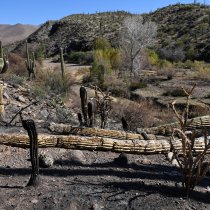Dr. Taylor goes to Washington
February 16, 2012
By Jeff Taylor
I stare intently at the Senior Congressional Legislative Assistant seated opposite me. He stares back, his eyes equally intent. I wet my lips and slowly repeat my question to let him know that he’s not getting off the hook that easily. A small bead of sweat trickles down his forehead. Suddenly, he slams his hands down on the table between us and exclaims “Yes! Yes, we will contact you if we have any questions about climate science!” I heave a sigh of relief and walk from another Congressional office knowing that I am making progress toward changing the dialogue surrounding climate science on Capitol Hill. In reality, the Second Annual Climate Science Day on Capitol Hill was filled with much less drama and was far more enjoyable. NEON collaborated with twelve other scientific societies to bring climate scientists to Washington and facilitate communication with policy makers. NEON sponsored six of the thirty participating scientists and also took a lead role in organizing the event. While the expertise of the scientists spanned a breadth of climate science disciplines, we all descended on the Capitol armed with one message: “please talk to climate scientists about climate science." It seemed like a very simple and obvious message, but it was surprising how critical it really was.
The day before the actual event at the Capitol, we visited the American Association for the Advancement of Science for a briefing on what we should expect. While I prepared myself for a tedious afternoon, I was pleasantly surprised to find that I was very engaged by the discussion. Ed Maibach, Director of the Center for Climate Change Communication at George Mason University, gave an excellent presentation about the challenges of communicating climate science in a policy forum, while a panel of four different Congressional staffers (two Democratic and two Republican) discussed the different perspectives of their parties and their bosses. For the most part, their messages focused on the fact that the climate is not a hot topic right now as Congress is focused on the upcoming budget and this year’s election. As regular NEON blog readers will know, communicating climate science is something about which I’m quite passionate but, as I quickly learned, communicating with policy makers is a whole new ball game. Climate science is often obfuscated by ad hominem attacks and can get very confusing for a non-scientist. Take this same topic to Capitol Hill and it can often find itself mired in partisan politics, so much so that each side of the Senate floor sent their own video presentation to the most recent UN Climate Change talks in Durban, South Africa. Regardless of their political views and party positions, all of the politicians that I met did uniformly have one thing in common: they genuinely cared about the well-being of their constituents. This fact allowed us to find the common ground necessary to facilitate real communication: discussing the impacts of climate change in their community resonated with everyone that I met.
As you can imagine, Capitol Hill is a very busy place and many different people/groups/organizations are vying to get the attention of our legislators. At the previous day’s briefing, we were told to expect that our meetings would be short and staffers/legislators would most likely be distracted. Nothing could have been farther from the truth. Everyone we met was very engaged and several people spoke to us for close to an hour. BlackBerrys were always turned off and the dialogue was very polite and respectful. From both sides of the aisle, our message of “please talk to us” was well received and appreciated. In fact, one Republican team that has been known to not be very supportive of climate science was very happy to speak with us. They discussed their concerns about impacts in their community and the struggle to decipher fact from fiction in the climate science debate. Our offer to assist them in their understanding by providing knowledge and professional comments on studies in their region was genuinely welcomed. In fact, our message of “please contact us with questions” has already resulted in some follow-up dialogue which we hope to cultivate. Amid the often emotional debates of Capitol Hill, we managed to make a connection with our legislators. Making ourselves available as resources appears to be the key to enhancing climate science communication with policymakers. I’ve already requested to participate in next year’s Climate Science Day – and I encourage all other climate scientists to do so as well.


